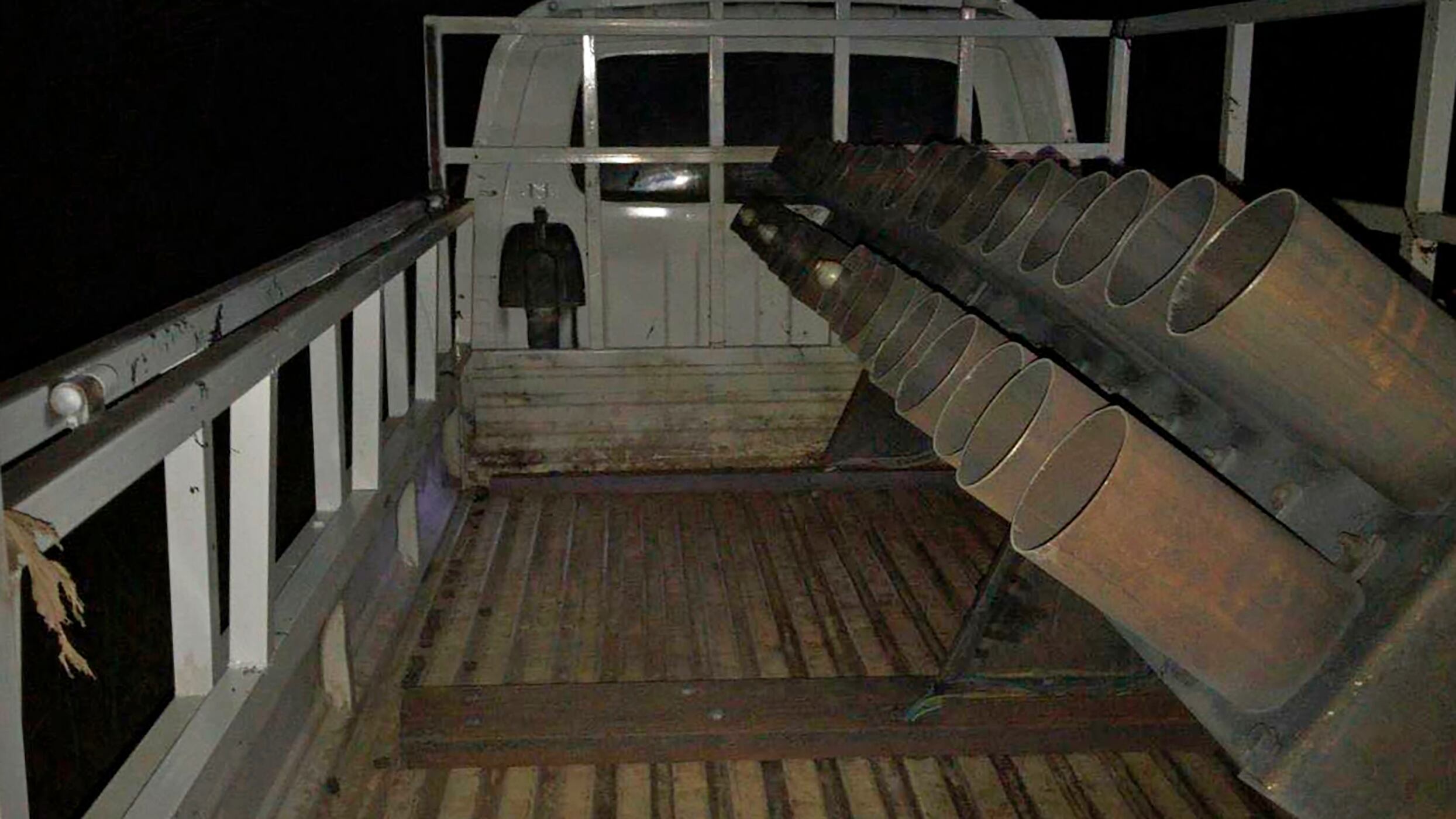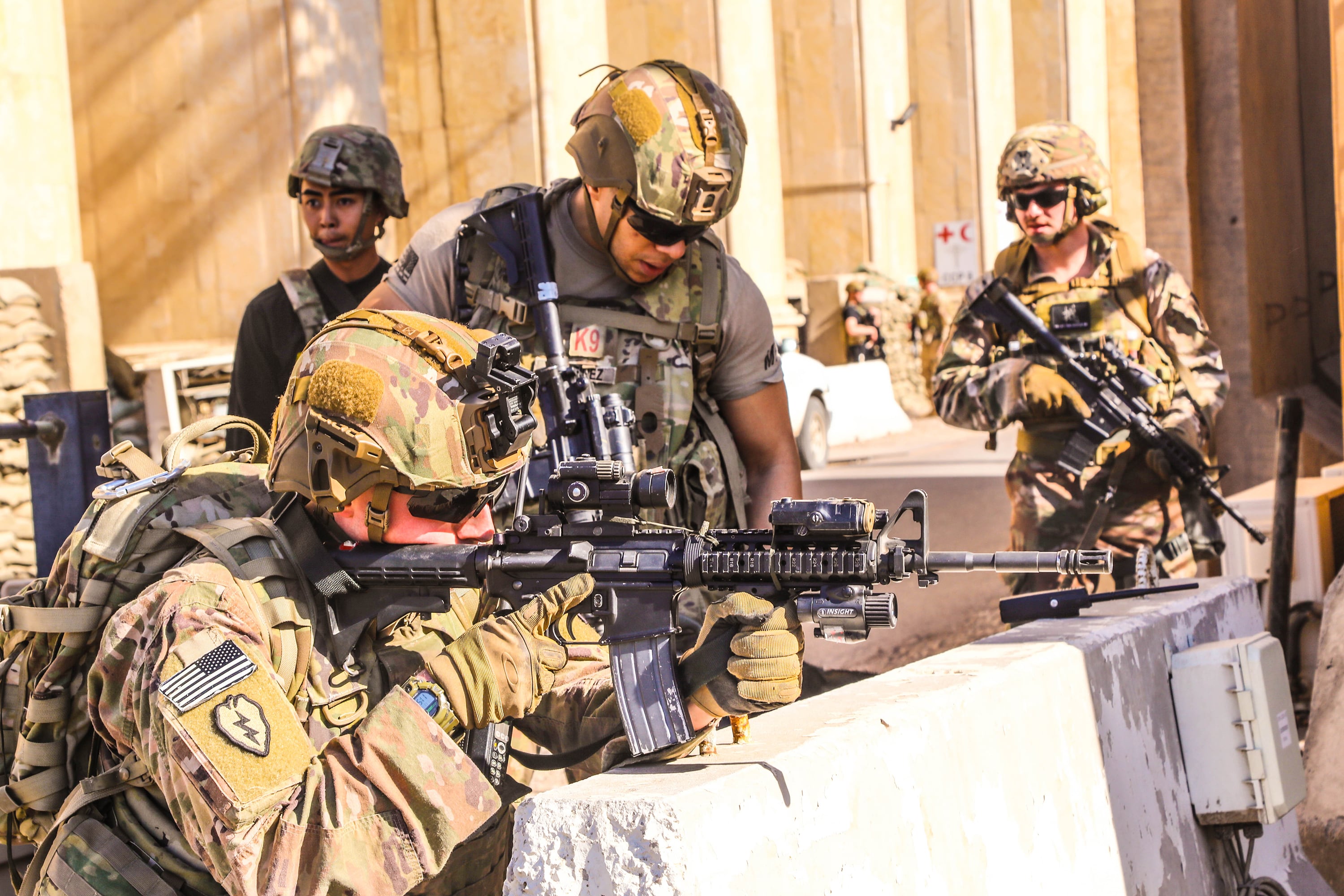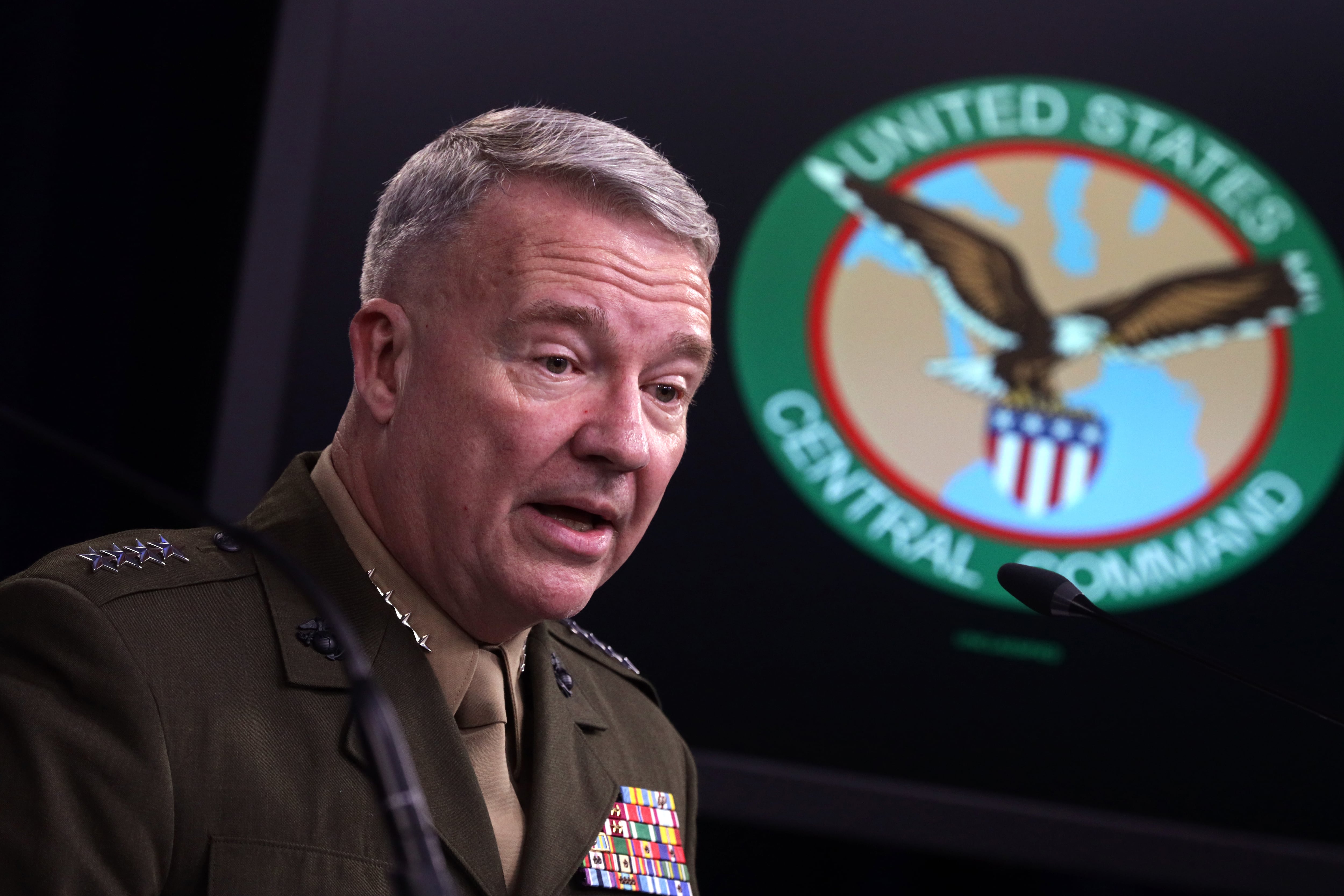BAGHDAD — Iraq’s military said Thursday it opened an investigation into a rocket attack that killed three service members, including two Americans, at an Iraqi base housing coalition forces, igniting fears of an escalation in U.S.-Iran tensions after months of detente.
At least 12 coalition personnel were also wounded late Wednesday by a barrage of rockets targeting Camp Taji base, located 27 kilometers (17 miles) north of Baghdad, according to a U.S.-led coalition statement.
A British service member, identified as 26-year old Lance Corp. Brodie Gillon was also killed in the attack, according to London’s Defense Ministry.
A truck rigged with 107 mm Katyusha rocket launchers was discovered by Iraqi security forces a few kilometers (miles) from the base following the attack.

A military statement from Iraq’s joint operations command said caretaker Prime Minister Adel Abdul-Mahdi ordered the investigation into what he called “a very serious security challenge and hostile act.”
The United Nations condemned the attack, saying it took “critical political attention away” from Iraq’s ongoing domestic challenges, which threaten to create a power vacuum in the Iraqi government.
“The last thing Iraq needs is to serve as an arena for vendettas and external battles,” the statement said.
RELATED

The attack came as a potential leadership void looms over Iraq after prime minister-designate Mohammed Allawi withdrew his nomination earlier this month. It also comes as the country’s decrepit health care system struggles to contain the coronavirus pandemic.
Allawi’s stepping down followed political squabbling over the naming of his Cabinet. Shortly afterward, the caretaker premier, Abdul-Mahdi, said he would no longer carry out most of his official duties and called for early elections.
The attack was the deadliest to target U.S. troops in Iraq since a late December rocket attack on an Iraqi base that killed a U.S. contractor and set in motion a series of tit-for-tat attacks that brought Iraq to the brink of war.
American airstrikes targeting the Iran-backed militia Kataib Hezbollah led to protests at the U.S. Embassy in Baghdad.
A U.S. drone strike in Baghdad then killed Iranian Gen. Qassem Soleimani, a top commander responsible for expeditionary operations across the wider Mideast. Iran struck back with a ballistic missile attack on U.S. forces in Iraq, the Islamic Republic’s most direct assault on America since the 1979 seizing of the U.S. Embassy in Tehran.
The U.S. and Iran stepped stepped back from further attacks after the incident. A senior U.S. official had said in late January, when U.S.-Iran tensions had cooled, that the killing of Americans constituted a red line that could spark more violence.
Wednesday’s attack coincided with what would have been Soleimani’s birthday.
RELATED

U.S. officials have described Soleimani’s killing as an act of deterrence against Iranian aggression. U.S. troops had faced an increase in rocket attacks in the weeks leading up to the strike.
But analysts said Wednesday’s attack demonstrated that Soleimani’s assassination had done little to alter the behavior of Iran-backed groups.
“The attacks underline how negligible the strategic impact of Soleimani’s assassination has been. The drivers of U.S.-Iranian escalation remain in place,” said Fanar Haddad, senior research fellow at the Middle East Institute at the National University of Singapore.
“Such an attack closer to the aftermath of Soleimani’s assassination would have been a lot riskier with Trump’s attention focused on Iran. The passage of time was key.”
Iran-backed militia groups issued statements Thursday supporting Wednesday’s attack, but none claimed responsibility.
Kataib Hezbollah “blessed” those who carried out the rocket attack and described U.S. troops as “occupying forces that must bear the consequences of their illegal presence” in Iraq.
There are at least 5,200 U.S. troops in Iraq, training and advising Iraqi forces as part of a global coalition.
Associated Press writers Qassim Abdul-Zahra in Baghdad and Pan Pylas in London contributed.





